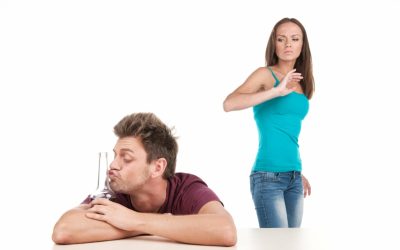Though alcohol can have a sedative effect, it has also been linked to sleep disorders like insomnia. If you’re having trouble falling or staying asleep, alcohol consumption could be a contributing factor. However, a person’s sleep quality after alcohol does alcohol cause insomnia consumption is generally worse. People who consume alcohol may wake up during sleep and experience increased disruptions such as sleep apnea and snoring. Sleep apnea is a common sleep disorder that causes breathing disruptions during sleep.
When drinking before bed, be mindful of the potential to develop symptoms of insomnia. This can become a habit that can create an unhealthy reliance on alcohol. Alcohol can disrupt your sleep and reduce your ability to have consistent REM sleep.
Drinking Water Before Bed
CBTi, as offered by Sleepstation, could help if you’re experiencing alcohol-induced insomnia. Too many pints — or that extra glass of wine — can be the trigger for waking up bathed in sweat with your pillow soaking wet. Alcohol will undoubtedly help to send you off to sleep as it actually works on the same receptors in the brain that are targeted by some sleeping tablets.
The circadian rhythm is your body’s internal clock, which helps you feel awake during daylight hours and sleepy at night. A crucial part of your circadian rhythm is melatonin production — a natural sleep-inducing hormone. As it gets dark, the pineal gland starts releasing melatonin, so your body can transition more smoothly into sleep. It’s clear that using alcohol as a sleep aid leads to poorer sleep and disrupted sleep can lead to an even greater dependence on alcohol. No wonder addiction feeds off this debilitating cycle and insomnia in young adults prevails. So it’s easy to understand why young people can become locked into a repetitive cycle of sleep deprivation, alcohol dependence, risky behaviour and addiction.
Trướcenting Alcohol Withdrawal Insomnia
Research also suggests alcohol impairs a person’s response to light cues, which is a crucial part of regulating your internal clock. The relationship between alcohol and sleep is mostly harmful. Some people may find they can’t sleep after drinking or their sleep quality suffers, and the science backs up this reality. “In the middle of the night, when the https://ecosoberhouse.com/ liver is metabolizing that alcohol, people usually wake up and have an inability to fall back asleep,” says Brager. “Consuming alcohol suppresses the central nervous system, and when it’s been suppressed for a significant period of time, the reverse happens. Alcohol relaxes your muscles and restricts your airflow, so you might find yourself snoring.
Specifically, research shows that drinking alcohol increases your risk of OSA by 25%. The same increase in risk factor applies to people who typically binge drink, rather than those who only consume alcohol in moderation. Sleep apnea is a severe problem that can leave you feeling chronically under-rested. Research also indicates that drinking alcohol makes a person more likely to experience a sleep-related eating disorder.
It Can Increase Your Risk of Sleep Apnea
Research shows that consuming alcohol — even in a moderate dose — an hour before bedtime can cause a notable reduction in melatonin production. Some people may assume alcohol is helpful for sleep, since it has a relaxing, soporific effect. Consuming alcohol can help a person fall asleep because alcohol is a depressant. As alcohol enters the bloodstream, it introduces chloride ions to neurons, slowing the neurons’ firing. However, people tend to quickly develop a tolerance to alcohol’s sedative effects, so if you drink regularly, you may not feel sleepy unless you drink to excess. Rapid-eye movement (REM) sleep usually happens about 90 minutes after you fall asleep.
- Experts state that acute insomnia lasts up to a few days to weeks, while chronic insomnia continues for several months.
- CBTi reduces symptoms of insomnia among young adults who are actively drinking — even in the absence of direct alcohol intervention.
- Scientists have been studying the relationship between alcohol and sleep since the 1930s.
- This phenomenon comes as your body finishes metabolizing the alcohol you consumed.
If you wonder how long alcohol withdrawal last, the answer varies. The withdrawal then tends to last hours, lessening in severity as times goes on. However, this time can be quite challenging, especially for a suicidal alcoholic. If alcohol continues to disrupt your overall sleep quality, you may consider cutting it out entirely, or limiting your intake before bedtime.
Why Can’t I Sleep After Drinking?
But even if you thud into dreamland, there’s a good chance that too much alcohol will mean a fitful night of sleep. That’s because alcohol disrupts what’s known as your sleep architecture, the normal phases of deeper and lighter sleep we go through every night. A night of drinking can “fragment,” or interrupt, these patterns, experts say, and you may wake up several times as you ricochet through the usual stages of sleep.

Insomnia is a common sleep disorder that can make it hard to fall asleep or stay asleep. It also can cause you to wake up too early and not be able to get back to sleep. It also can affect your health, work performance and quality of life. Insomnia from alcohol use is pretty common, and studies have shown that anywhere from 36% to 91% of those who are alcohol dependent will struggle with sleep disturbances or insomnia.
Insomnia is a sleep disorder that can affect people of all ages. Small amounts of alcohol may cause short-term sleep disturbances, but frequent and large quantities of alcohol consumption may lead to chronic insomnia for certain individuals. Although experts can’t be certain that alcohol directly causes insomnia, numerous studies have found a link between this sleep disorder and alcohol consumption. When people in America notice they’ve developed issues falling asleep, their first reaction is often to have a drink.

